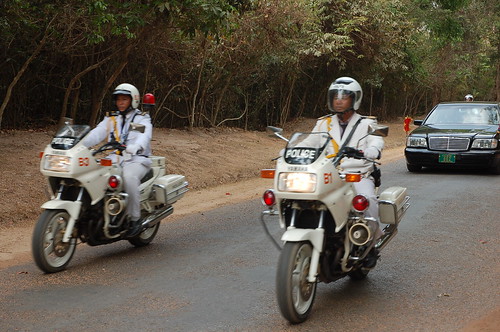I blogged about China for 5 years but still didn’t mention the Chinese character. How can it be possible. Let me talk about the Chinese characters today.
It is Completely Different from English
I am not talking about the language itself, I am talking about the characters. Is there a difference?
The written language of many language, like English and German, are record of the pronunciation. You see the written language, and chances are, you can pronounce it.
Chinese charters are the record of meanings, or the object, and has separation between the oral language, or the pronunciation.
This major difference makes it possible for Chinese to survive in the last 2 thousands years, and, in my personal belief, to hold the country as a united country.
Examples
China is so large, and pronunciation of the same language changes dramatically. For example, in Southeast part of China, almost every village has their own variety of pronunciation, and it differs from each other every 10 km.
I could not understand the language Shanghainese say, and now I can understand but still cannot say the language after I am in this city for 12 years. It is not just accent – it is completely another language!
However, the written language of the whole China is the same. No matter how different people pronounce, when they write it down, it is the same language! That is the amazing thing about Chinese.
The Written Language
How does it work? You may ask.
Look at this picture I draw.

On the first line is the original Chinese characters.
A circle with a dot in it means the Sun. A moon shape with cloud around it is the Moon. What people mean by putting the Sun and the Moon together? It means light, bright…
On the right, there are two characters, one is pointing to top, and one is pointing down. So the left one means “up” and the right one means “down”.
At the bottom, there are one line, meaning 1, two lines = 2, and three lines = 3.
Then with the mountain shape – a horizontal line with three vertical lines above it (with the middle one higher), people are expressing “mountain”, and for water, they draw it like water.
That is the origin of the Chinese characters.
In the several thousands characters (two thousands are commonly used), the most basic characters are either the same of the nature, or has some meaning like 1, 2, 3…
Pronunciation and Characters
I just imagine. If someone pronounce 山 (or Mountain) as Mountain, and pronounce 一 (or one) as one, as long as they write it the same way, they are still speaking Chinese!
From the middle of the last century, a general pronounciation was enforced to make it easy for people to communicate. This is called Putonghua 普通话 or Mandarin. Many people say basically two languages, with Putonghua and the local language.
I am convinced because of people share the same written language, China is always a united nation while empire like its size already broke into smaller countries. If China should have used a language the record the pronunciation, it should have already be the same situation as Europe – German, French, English… many very similar but different languages, thus became different countries.
Just because it is the shape of the nature, I still can directly read all the books written thousands of years ago without too much difficulty (a little bit). This is a miracle that I enjoy.
Hope this helps to bring some interest about Chinese to you.
